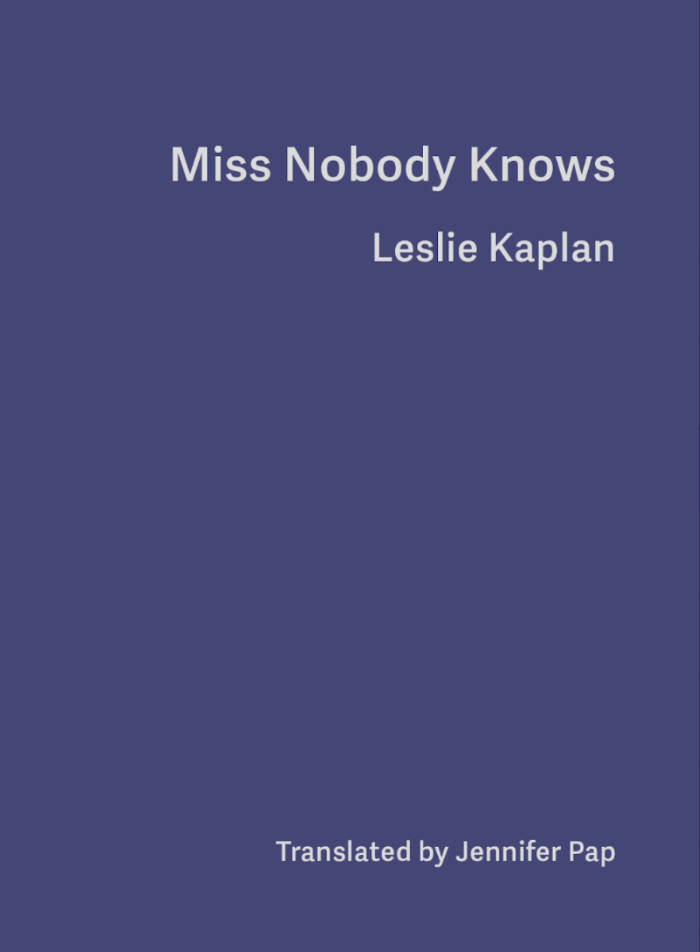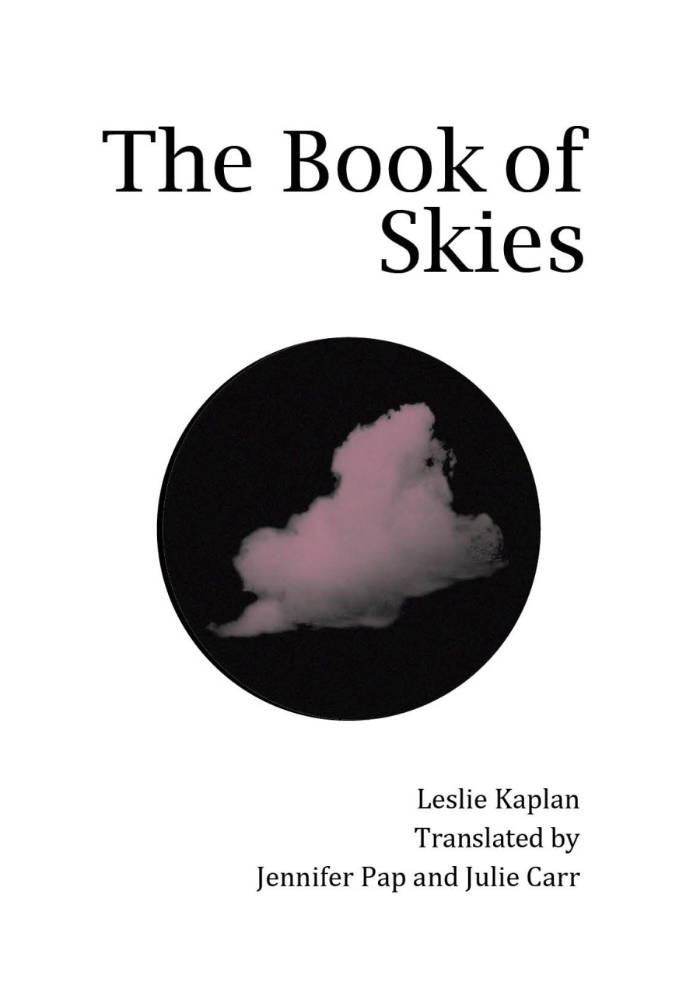Leslie Kaplan
Leslie Kaplan

Miss Nobody Knows
The first English translation of Leslie Kaplan's crystalline novella Miss Nobody Knows, about the lived aftermath of May '68: its hopes and failures and how they continue to resonate today.
“Ostensibly about the May '68 strike and a man who cannot deal with its aftermath, but really a love story to these moments when suddenly the utopian comes into view and no longer feels impossible. It’s a book to read right now so as to remember that there have been moments when people come together in the name of possibility, rather than in rage.” —Juliana Spahr
“Thank you for sending Leslie Kaplan's book, so strong and graceful, so… so… so… as if the novel were suspended between the animal and the human.” —Jean-Luc Godard, letter to Paul Otchakovsky-Laurens
“One thought he understood it all, the other wanted to see it all. Through two opposing characters, Leslie Kaplan brings to life something of May '68 … This novel breaks an opening out of the infinitely mad universe that was captured by Leslie Kaplan's first book, Excess-The Factory.” —Claire Devarrieux, Libération

The Book of Skies
Leslie Kaplan, Jennifer Pap and 1 more
The Book of Skies, like its predecessor Excess-The Factory, emerged from poet Leslie Kaplan's experience participating in the national strike and social revolution of ’68 in France. Early in ‘68 Kaplan, like others, left her studies in order to take on factory work, as an aspect of revolutionary practice. Excess—the Factory, puts the factory experience strikingly on the page in sparse and original language. The Book of Skies takes place in the period just after the ‘68 events as the central speaker now observes the places, landscapes, and people surrounding and relying on factory production in French cities, small and large. As the poem’s speaker moves from site to site, she finds possibility within the social spaces of the market, the street, the café, and even the factory itself. While class and gendered violence threaten to shut down hopes for freedom and renewal, the sky, as reality and as figure, functions as an aperture, drawing our attention upward and outward, even or especially when domestic and work-spaces are most violent or suffocating.
From the beginning of her career, French poet, playwright, and novelist Leslie Kaplan has been an important writer of the French left. She has published over twenty books in all three genres, many of which have been translated into German, Swedish, Spanish, Danish, Norwegian, and now, English. Her first book, L'exces l’usine (1982), gained the attention of writers such as Marguerite Duras and Maurice Blanchot, and became an important book for the ‘68 generation. In 2018, Commune Editions published Excess—The Factory, translated by Julie Carr and Jennifer Pap. This was the book’s first translation into English, though it had been translated into five other languages.